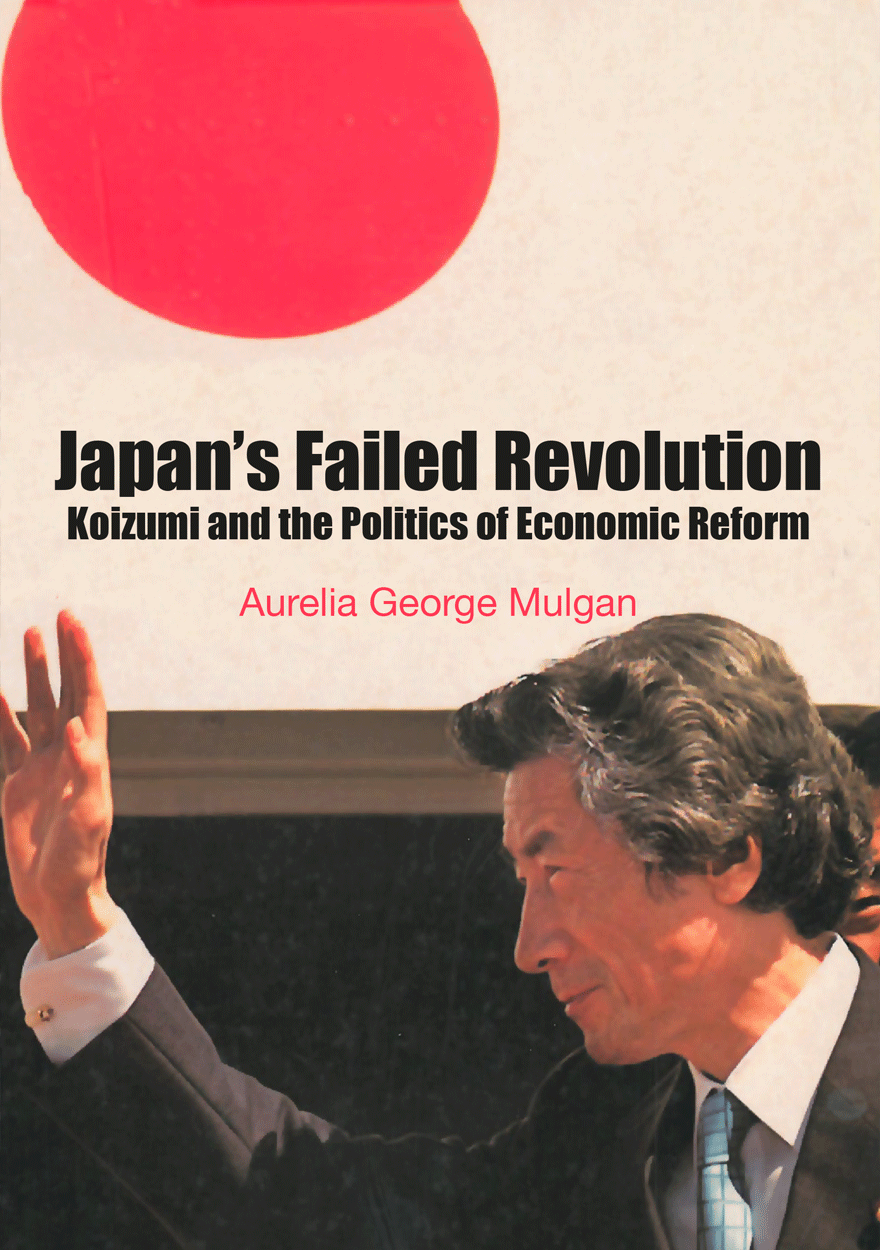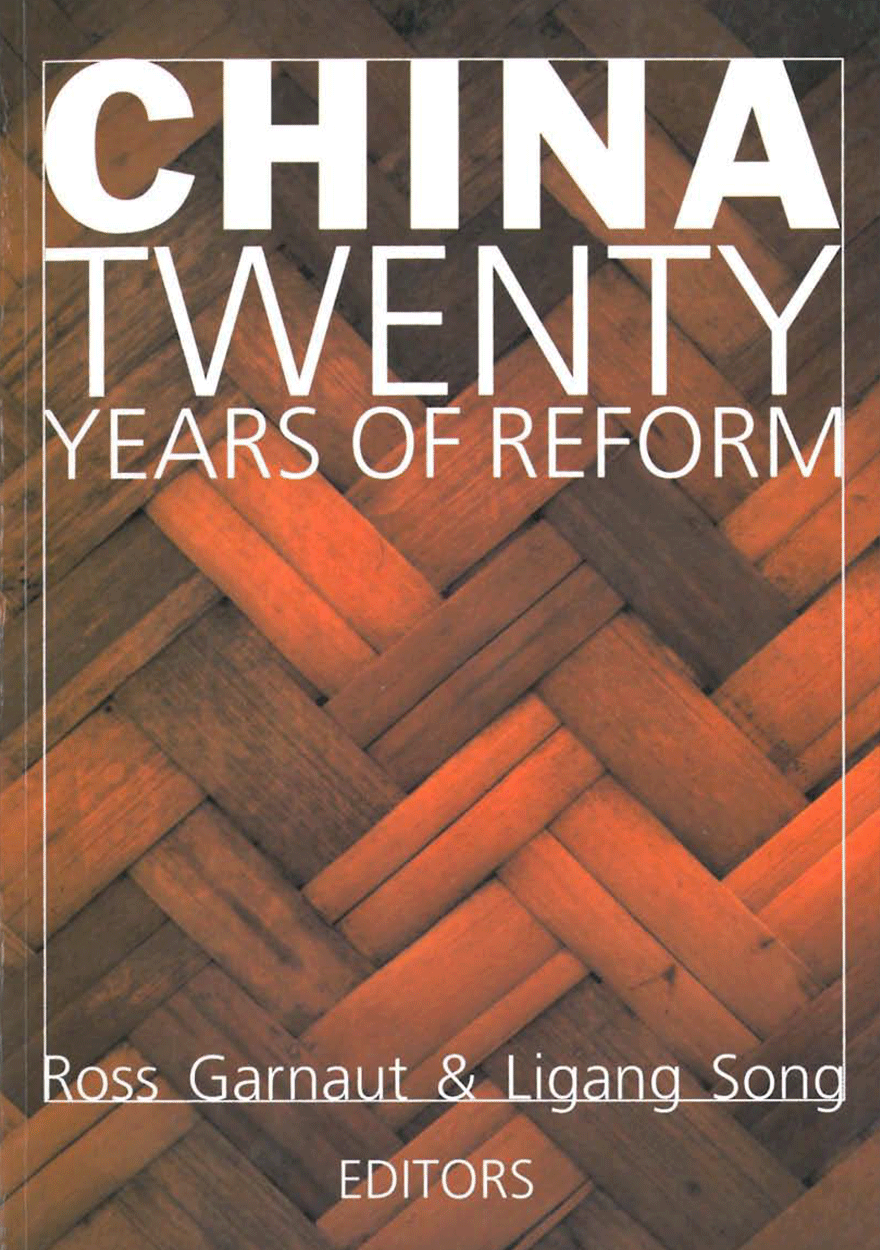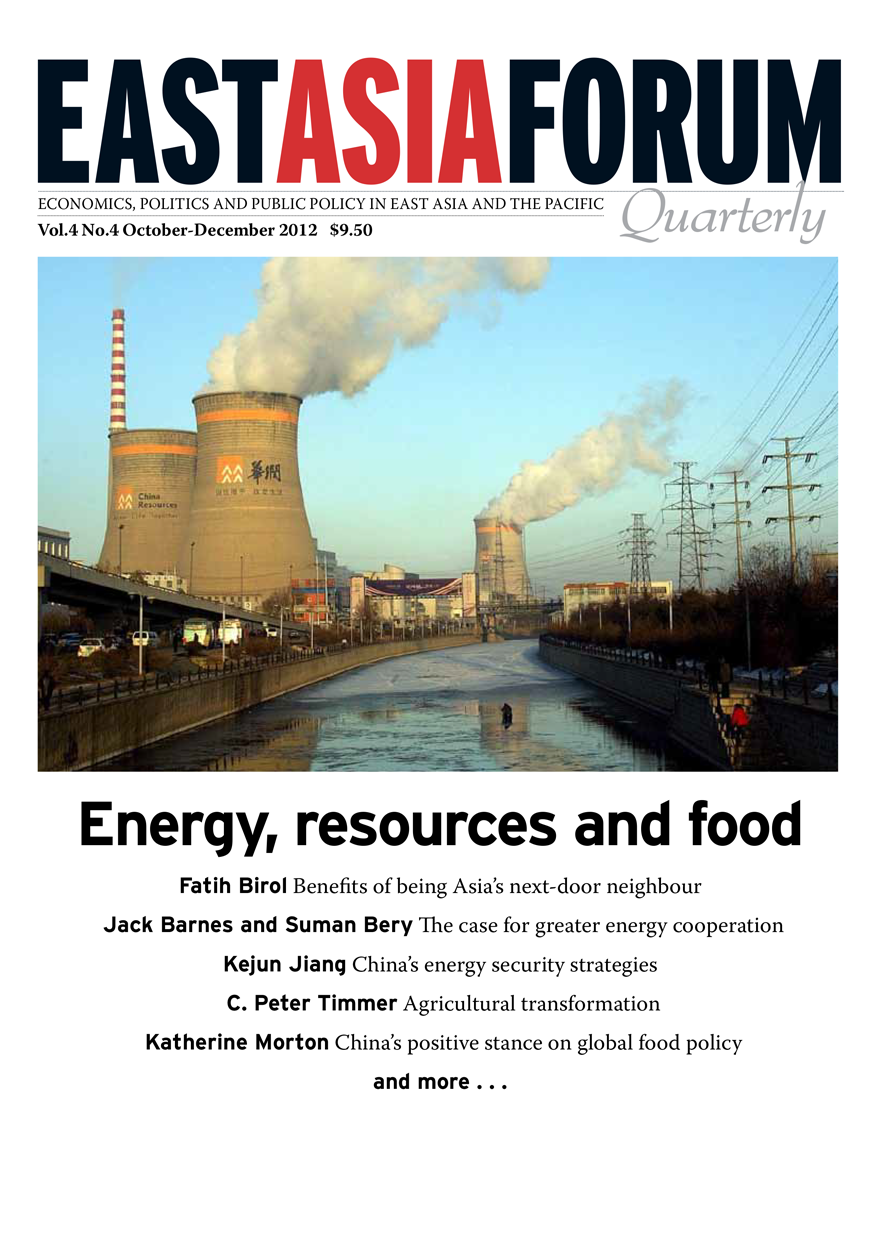Search titles
Displaying results 71 to 80 of 130.

East Asia Forum Quarterly: Volume 5, Number 2, 2013 »
Publication date: June 2013
East Asia Forum Quarterly grew out of East Asia Forum (EAF) online, which has developed a reputation for providing a platform for the best in Asian analysis, research and policy comment on the Asia Pacific region in world affairs. EAFQ aims to provide a further window onto research in the leading research institutes in Asia and to provide expert comment on current developments within the region. The East Asia Forum Quarterly, like East Asia Forum online, is an initiative of the East Asia Forum (EAF) and its host organisation, the East Asian Bureau of Economic Research (EABER) in the Crawford School of Economics and Government in the College of Asia & the Pacific at The Australian National University.
Download for free
Not available for purchase

Asia-Pacific Security »
Policy Challenges
Edited by: David W. Lovell
Publication date: May 2013
Since September 11, 2001, our newspapers have been filled with the ‘war on terror’; our governments have mobilised their resources for ‘homeland security’; and people everywhere are braced for more terrorist attacks.
Yet while the new threat is genuine, we must not lose sight of the continuing security concerns in the Asia-Pacific. Tensions persist on the Korean peninsula, in the Taiwan Straits and the South China Sea, and in Kashmir. The region is well supplied with weapons of mass destruction and may face an arms race, and there are a range of pressing human security issues. Likewise, the strategic realities of the region remain linked with US power, and with the emergence of China as a key regional player.
The book examines the developing strategic relationships in the region, and clarifies the dilemmas for Australian policy-makers as they try to balance genuine engagement with the region against a long-standing and valued alliance with the United States.
Emerging from discussions between the Shanghai Institute for International Studies and the University of New South Wales at ADFA, Asia-Pacific Security has a particular relevance for foreign-policy professionals and scholars of the region.
Printed copies of this book may be ordered from ISEAS publishing.

Japan's Failed Revolution »
Koizumi and the Politics of Economic Reform
Authored by: Aurelia George Mulgan
Publication date: May 2013
Japan’s Failed Revolution: Koizumi and the Politics of Economic Reform asks why, despite all the high expectations, the Japanese public’s desire for economic reform, and leadership of a majority coalition in a parliamentary democracy, the reformer Prime Minister Koizumi has not achieved the economic reforms expected of him since he surprisingly attained power over a year ago. To unravel this ‘puzzle’, Aurelia George Mulgan eschews the simplicities of both cultural and rational choice explanations and systematically tests the propositions in the comparative literature on ‘failed reform’. The result is one of the best books ever written about contemporary Japanese politics. It explains how, despite British-style parliamentary institutions, Japan’s very ‘un-Westminster’ traditional policymaking process involving the ruling party and the bureaucracy’s structure and linkage has stymied and will probably continue to stymie even a sincere and active Prime Minister’s best reform intentions. This book should be read by all political scientists, journalists, economists, and students interested in contemporary Japan.
Ellis S. Krauss
Graduate School of International Relations and Pacific Studies
University of California, San Diego.
The author takes a scalpel to dissect Japan’s dysfunctional political system. She shows with wonderful clarity and depth of knowledge why the Koizumi reforms are not succeeding, and why revolutionary political change is needed as a precondition for economic recovery. The book should be required reading for anyone involved with contemporary Japan.
J.A.A. Stockwin
University of Oxford.

East Asia Forum Quarterly: Volume 5, Number 1, 2013 »
Publication date: March 2013
East Asia Forum Quarterly grew out of East Asia Forum (EAF) online, which has developed a reputation for providing a platform for the best in Asian analysis, research and policy comment on the Asia Pacific region in world affairs. EAFQ aims to provide a further window onto research in the leading research institutes in Asia and to provide expert comment on current developments within the region. The East Asia Forum Quarterly, like East Asia Forum online, is an initiative of the East Asia Forum (EAF) and its host organisation, the East Asian Bureau of Economic Research (EABER) in the Crawford School of Economics and Government in the College of Asia & the Pacific at The Australian National University.
Download for free
Not available for purchase

APEC and liberalisation of the Chinese economy »
Edited by: Peter Drysdale, Zhang Yunling, Ligang Song
Publication date: December 2012
“China is so large that its trading interests and influence are global. But its interests are disproportionately powerful in its immediate Western Pacific and Asia Pacific partners. The evolution of China’s economic relationships with its Asia Pacific partners, in which APEC came to play a significant role in the 1990s, is thus a central part of the story of China’s rapidly growing and changing interaction with the global economy.”
- Ross Garnaut
APEC is an important forum through which China can demonstrate its commitment to economic openness. APEC has also been an important vehicle for China’s trade liberalisation on the way towards accession to the WTO.
In facilitating trade liberalisation, APEC and the WTO are mutually reinforcing. APEC prepares China for the WTO and WTO accession encourages China’s active participation in the APEC process. Both APEC membership and WTO accession help with the huge task of China’s domestic reform.
This book sets out China’s strategic interests in APEC in the lead-up to the APEC summit in Shanghai in 2001. Contributors include leading Chinese economists from the APEC Policy Research Centre in the Chinese Academy of Social Sciences–Zhang Yunling, Zhang Jianjun, Sun Xuegong, Li Kai, Chen Luzhi, Zhou Xiaobing, Zhao Jianglin–and from the Asia Pacific School of Economics and Management at The Australian National University–Peter Drysdale, Ligang Song, Ross Garnaut, Christopher Findlay, Andrew Elek, Yongzheng Yang, Yiping Huang, K.P. Kalirajan, Hadi Soesastro and Chen Chunlai.
This work, originally published by Asia Pacific Press, is reproduced here in the interests of maintaining open access to high-quality academic works no longer in print.

China 2002 »
WTO entry and world recession
Edited by: Ross Garnaut, Ligang Song
Publication date: December 2012
In 2002 China enters the WTO. Long awaited by the world’s trading economies, it now comes in a year of global recession. What effect will China’s entry into the WTO have at a difficult time? The rapid expansion of China’s trade has required large adjustment in its trading partners, and the expansion and adjustment will accelerate with WTO entry. The internal adjustment pressures in China from WTO entry are also immense.
Recently dubbed Australia’s Ambassador to the region by Rowan Callick of the Financial Review, Ross Garnaut was Australia’s ambassador to China through an earlier exciting period when China took its first major steps towards opening to international trade and investment. He was instrumental in the development of China’s thinking about the WTO.
Ross Garnaut is Chairman of the China Economy and Business Program at The Australian National University. Australian members of the Program and their associates gather each year for the China Update.
Ligang Song is leading authority on the internationalisation of the Chinese economy and on the development of the private sector in China. He has worked at Peking University and People’s University in Beijing and at the International University in Tokyo.
This work, originally published by Asia Pacific Press, is reproduced here in the interests of maintaining open access to high-quality academic works no longer in print.

China: New Engine of World Growth »
Edited by: Ross Garnaut, Ligang Song
Publication date: December 2012
Twenty-five years of reform have transformed China from a centrally planned and closed system to a predominantly market-driven and open economy. As a consequence, China is emerging as the new powerhouse for the world economy. China: new engine for world growth discusses the impact and significance of this transformation. It points out risks to the growth process and unfinished tasks of reform. It presents conclusions from recent research on growth, trade and investment, the financial sector, income and regional disparities, industrial location and private sector development.
This work, originally published by Asia Pacific Press, is reproduced here in the interests of maintaining open access to high-quality academic works no longer in print.

China: Twenty Years of Economic Reform »
Edited by: Ross Garnaut, Ligang Song
Publication date: December 2012
China: Twenty Years of Reform outlines the experiences of China over the past two decades. It highlights the processes of reform, successes achieved, and problems faced during the economic transition.
“China, and its relations with the international community, have been transformed. China’s economy has expanded five times, and its foreign trade by twelve. It has greatly increased consumption levels of what had been about half of the world’s people in poverty.”
- Ross Garnaut
“Tremendous progress has been made over the past twenty years, but much more needs to be done in setting up a more open, efficient and transparent trade system, in line with the requirements of the WTO.”
- Ligang Song
“Radical reform is neither in China’s tradition, nor is it an easy task. Given the difficulties of the reform task and the structure of the political economy, it will probably take a few more years for China to accomplish SOE reform and reforms in other areas.”
- Yiping Huang
“The most remarkable aspect of China’s agricultural reform was it’s “spillover” effect. Non-agricultural activities in rural China sprang up immediately after the reforms began—the gross output value of TVEs grew at 24 per cent per annum from 1978 to 1995 and employment grew at 9 per cent per annum.”
- Yongzheng Yang
This work, originally published by Asia Pacific Press, is reproduced here in the interests of maintaining open access to high-quality academic works no longer in print.

Dilemmas of China's growth in the Twenty-First Century »
Edited by: Ligang Song
Publication date: December 2012
Since economic reforms began in 1978, China has been a focal point for observing the effects of market liberalisation. China has not only truly become one of the ‘emerging giants’ in the world economy but also provided a successful example for transition from a centrally-planned to a market economy. Thus, there is a keen interest about what lies ahead for such a significant economic player. Dilemmas of China’s Growth in the Twenty-First Century is a comprehensive treatment of China’s economic achievements to date and prospects for the twenty-first century. Covering topics as diverse as economic stability and growth sustainability, WTO membership and its implications, income disparity, agricultural policy, trade and investment prospects, Dilemmas of China’s Growth in the Twenty-First Century is a powerful work and essential guide to the latest trends and prospects for the Chinese economy.
This work, originally published by Asia Pacific Press, is reproduced here in the interests of maintaining open access to high-quality academic works no longer in print.

East Asia Forum Quarterly: Volume 4, Number 4, 2012 »
Publication date: December 2012
East Asia Forum Quarterly grew out of East Asia Forum (EAF) online, which has developed a reputation for providing a platform for the best in Asian analysis, research and policy comment on the Asia Pacific region in world affairs. EAFQ aims to provide a further window onto research in the leading research institutes in Asia and to provide expert comment on current developments within the region. The East Asia Forum Quarterly, like East Asia Forum online, is an initiative of the East Asia Forum (EAF) and its host organisation, the East Asian Bureau of Economic Research (EABER) in the Crawford School of Economics and Government in the College of Asia & the Pacific at The Australian National University.
Download for free
Not available for purchase



